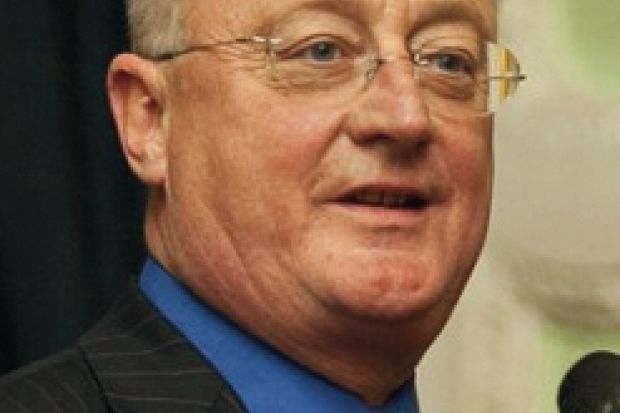Eric Thomas, vice-chancellor of the University of Bristol, said that although he was confident institutions would rise to the challenges they faced, there would need to be "very astute observation and analysis" before further changes.
Speaking to Times Higher Education ahead of his address to UUK's annual conference, Professor Thomas said: "I think the real key issue is be careful about the pace and quantity of change. There comes a stage where if they're driven too quickly and there is too much of them we could have a difficult transition.
"One of the things I will be saying to the government is 'fine, let's initiate what will come out after the consultation of the White Paper but then let's be pretty careful about monitoring and assessing its impact before just driving onwards to greater change at greater speed'."
He said one example was the AAB proposals, which the government wants to consider extending after 2012-13 by lowering the A-level threshold above which universities can compete freely for places.
"If something like that changes every single year, and we're seeing a whole series of consequences that we couldn't predict from that, that could, not get us into trouble, but provide a substantial challenge," he warned.
Earmarking the end of 2012 as the crucial time to take stock, Professor Thomas said he would say: "If we see a series of quite challenging changes in behaviour and student mobility as a result of AAB by Christmas 2012, then please don't necessarily rush into changing it even more the following year."
However, Professor Thomas, who witnessed the political wrangling over funding reform at first hand as UUK vice-president, said he would still take the approach of being "direct" with ministers in private but would not engage in "confrontational public soapboxing".
"It is in nobody's interest that Universities UK falls out with the government," he said.
"Being at the table, talking to the government, influencing policy and trying to develop that policy with them is the position that UUK must be in. For us to have an all-out fight with the government and find that our communications are very much less is not a victory for the members I represent."
He also defended the leadership of the previous president, Sir Steve Smith. "I can tell you that Steve Smith did represent (different universities) as even-handedly as he could and so will I," Professor Thomas said. "I am absolutely clear that I represent all universities in the land. But that doesn't mean I can necessarily secure the very best outcome for each individual university."
Professor Thomas, who trained as an obstetrician, said it was wrong to compare the sector's reaction to reform with the NHS, where vocal protest by bodies such as the British Medical Association helped lead to a rethink by ministers.
As well as the NHS being a single public sector body, unlike autonomous universities, the health reforms had not been expected, while most vice-chancellors thought tuition fees would rise whatever party won power, he argued.
Register to continue
Why register?
- Registration is free and only takes a moment
- Once registered, you can read 3 articles a month
- Sign up for our newsletter
Subscribe
Or subscribe for unlimited access to:
- Unlimited access to news, views, insights & reviews
- Digital editions
- Digital access to THE’s university and college rankings analysis
Already registered or a current subscriber? Login
